Brandon Stanton's Blog, page 100
October 29, 2018
“My younger sister passed away last year from an unexpected...
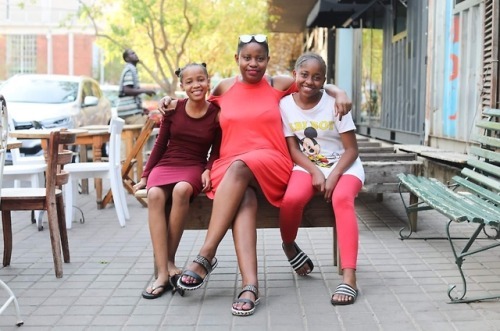
“My younger sister passed away last year from an unexpected stroke. So I’m raising both my daughter and my niece. In our culture, it’s an automatic. It just kicks in. She belongs to me now. I’m a single mother so it’s not easy. There are definitely months when I add up income and expenses and the numbers don’t work. And both of them are thirteen so their moods are all over the place. Today is like this, and tomorrow is like that. But God has given us favor as well. We can afford to share an ice cream. We have shelter. We have food. And after four months of no work, I just found a new management position. So we’ve come a long way. My niece is beginning to heal. Her grades are improving at school. She still speaks of her mother in the present tense, but there’s no more crying at night. And I’ve grown a lot as well. Because more than I want to acknowledge, the struggle has given me meaning. This is my purpose. I have a little family. And we share what little we have.”
(Johannesburg, South Africa)
“I have nothing to complain about. I’m originally from Sudan....
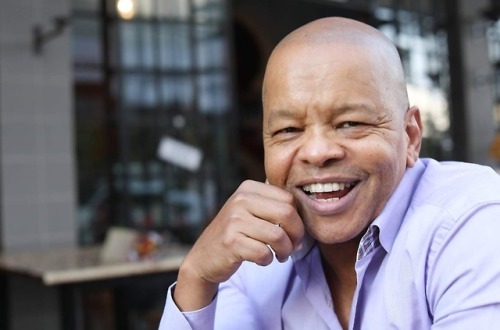
“I have nothing to complain about. I’m originally from Sudan. I love it there. So many happy memories. I got so much love from my family because I was the youngest. Since then I’ve lived in five different countries and I’ve enjoyed every single one. I don’t have a partner, but I have plenty of great friends. I don’t have children, but I’m a lovely uncle. I don’t take any medicine. I sleep well. I can walk around. I don’t know what to say. Every time I think about it, I conclude that I’m happy. I wake up smiling. I lived in Germany for several years. And they have these cameras along the highway that photograph you when you’re speeding. I’ve got a huge collection of photos because I love to speed. It’s always just me alone in my car. And I’m smiling in every one of them.”
(Johannesburg, South Africa)
October 27, 2018
(7/7) “While I was being interviewed on the radio, Carl...
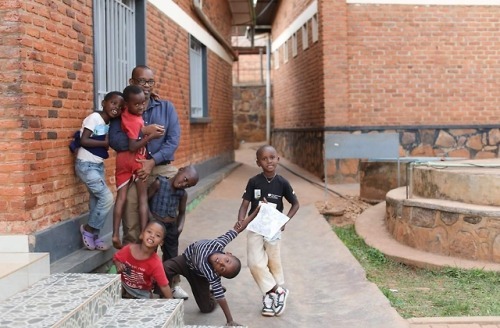
(7/7) “While I was being interviewed on the radio, Carl Wilkens was attempting an impossible mission. He’d gone to military headquarters, and begged the minister to let us transport children out of the orphanage. He wanted to move them to a protected church near the UN Mission. His request was denied because the children were Tutsi. But then a miracle happened. As he was leaving the building, the Prime Minister herself arrived for a meeting. Carl ran up to her and began to plead for the children. She told him to slow down and explain himself clearly. Then not only did she grant him permission, but she offered two buses for the transportation. Carl called me and told me to wait at the church. He said he would bring the children to me. I thought it was a suicide mission. There were four hundred people hiding in the orphanage. Many of them were malnourished and looked like fugitives. It was clear they had been hiding out for months. Why would the killers allow them to escape on buses? But it was our only chance, so I came to the church and waited. Carl told me the buses would arrive at 6 PM. But there was no sign of them by 8 PM. It had gotten completely dark. I was losing hope. But suddenly I heard people screaming: ‘Tutsis! Tutsis! Tutsis!’ The buses came around the curve, and pedestrians were chasing behind them. Inside I could see five people piled into every seat. The kids were hanging out the window, screaming: ‘Papa! Papa! Papa!’ Finally all of us were out of danger. We sheltered in the church until the genocide was over, but it didn’t take long. Three days later the capital was liberated. And all of the children had survived.”
(Kigali, Rwanda)
———————————————
Nearly 5,000 people have donated to our fundraiser to help Damas as he continues to help underprivileged and traumatized children. We just hit our goal. Thanks so much everybody, Damas is thrilled. Setting aside the dollar amount, it would be amazing if we could double the amount of donors. From this point on, I’ll add an additional $1 from the HONY Patreon to every donation given. Small amounts can have outsized impacts in developing countries. So even if it’s only a few dollars, please consider being counted: https://bit.ly/2OUBCSA
(6/7) “After people were discovered in the orphanage ceiling,...
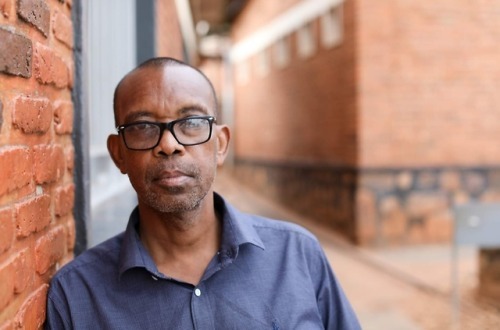
(6/7) “After people were discovered in the orphanage ceiling, the militia determined that I was a collaborator. They held a high level meeting and passed a resolution to kill me. I barely slept that night. And the next morning I awoke to my name being called out over the radio. It was the voice of the Minister of Social Affairs, and he was ordering me to report immediately to the radio station. I was paralyzed with fear. I didn’t know what to do. Should I go there and be killed? Or wait for them to come kill me? I felt like locking myself away, but my brother forced me to make a decision. So I decided to drive to the radio station. The station director met me at the entrance, and informed me that I’d be doing a live interview on the radio. It would be broadcast across the nation. He sat me down in front of a microphone. My mind was racing. My hands were trembling, but I did my best to not sound nervous. He started drilling me with questions. He asked why there were so many rumors about the orphanage. He asked if I was keeping any secrets. He asked how many people I was hiding. I steadied my voice. I told him: ‘If I was hiding people, would I have come here to meet you? I have nothing but children. They’re just babies.’ He looked at me for a long time. Then he finally spoke into his microphone: ‘Attention, militia! Damas Gisimba is no longer a suspect.’”
(Kigali, Rwanda)
(5/7) "One night I was walking the property when I heard...
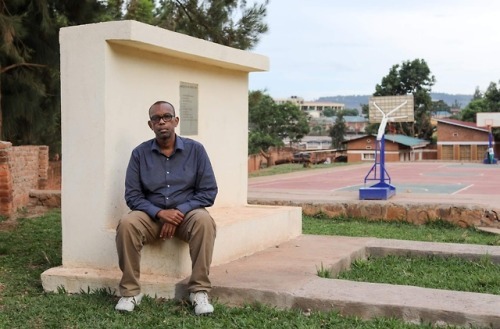
(5/7) "One night I was walking the property when I heard the children screaming. They were saying, ‘Papa! Papa! Papa!’ The screams were coming from inside the office. When I ran to see what was happening, I found that a group of killers had entered the building. There were about fifteen of them. They were wearing camouflage and carrying flashlights. They had already begun to pull young men out of the ceiling. I tried to stop them, but I was hit with the butt of a rifle. The blow fractured my arm. I didn’t dare to speak after that. The killers were already angry. If I annoyed them any more, they might harm the children. Six young men were dragged into the kitchen. They were beaten with pieces of wood that had nails sticking out. The killers were screaming: ‘Where are the others? Where are the others?’ At first the young men were begging for their lives, but their voices grew weak from loss of blood. The children heard everything and kept trying to see what was happening. I kept trying to chase them out of the room. I yelled at them to go back to bed. Eventually the young men were taken out to the bushes. All night they were tortured. I stood in the dark and listened to their voices. We were hiding hundreds of people at that point. I was sure they’d give everyone else away. But they never spoke. Their wives and family members were hiding in the ceiling, so they stayed silent until their deaths. They saved all of us. After the genocide, I built this memorial in their honor.”
(Kigali, Rwanda)
(4/7) “The militias would usually grow tired of killing people...
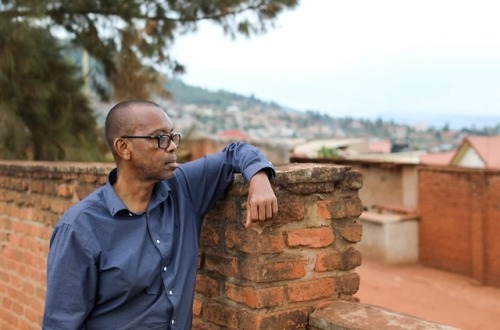
(4/7) “The militias would usually grow tired of killing people by 3 PM, and they would rest for the day. That’s when I’d take people out of the ceiling to stretch their legs. I’d circle the property. I’d walk to a nearby pit where they threw dead bodies. I’d listen closely to see if anyone was still alive, and I’d bring any survivors inside the orphanage. During this time I lost all my emotions and feelings. I became numb. It seemed like any moment the militias would kill us, or a bomb would accidentally hit the orphanage. And honestly I was ready for death. It seemed like it would be the best thing for me. My wife was also feeling hopeless. We saw each other for just a few minutes every night. She was busy trying to keep the babies alive. She’d lost so much weight. Her breast milk was gone. And the children were barely alive. They’d lost all of their muscle. They were just skin and bones. And we were almost out of food so I could no longer bribe the killers. One day two men came in a truck asking for one of my employees by name. They pretended that they had a child with them that needed medical treatment. When she walked out to see the child, they pushed her into the truck and drove away. Thankfully I was able to pull a baby out of her arms. They killed her just a few meters from here, but it was too dangerous to recover her body until after the genocide.”
(Kigali, Rwanda)
(3/7) “Our most desperate problem was water. The government...
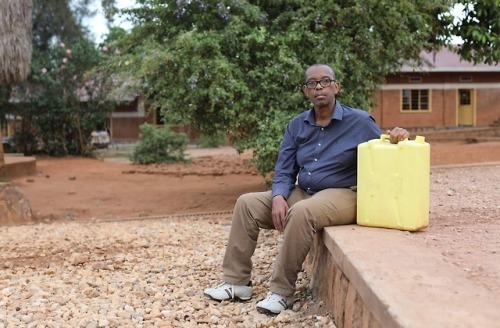
(3/7) “Our most desperate problem was water. The government had cut off our supply. And we were packed so densely that the heat was unbearable. Whenever we brought out jugs of water, one hundred liters would be consumed in less than a minute. After two weeks we’d run out completely. Then one morning I saw a car coming up the road. It had the markings of the Adventist Church. Out stepped a white man with a bulletproof vest. His name was Carl Wilkens. And he was the only American who had remained behind in Rwanda. ‘I heard about you,’ he said. ‘And I’ve come to encourage you.’ I took him around the property. I showed him all the people I was hiding. He could see that I was a nervous wreck. So he began to pray with me. He told me: ‘There is no way a man can survive this. But God will help us through.’ I told Carl that we desperately needed water. Without water we could not even cook our food. So he promised me that he would try to help. After that Carl would drive to the orphanage each week. He’d bring water and milk for the kids. And to this day, I don’t understand where he got it. All of the stores were closed. Carl was the only thing keeping us alive. Every week I was convinced that he would be killed on the journey. The roads were so dangerous. People would shoot out his tires. But every week he showed up with more water.”
(Kigali, Rwanda)
(2/7) “Over the next few days, the situation grew worse....
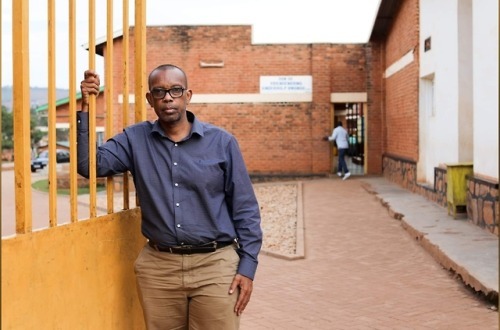
(2/7) “Over the next few days, the situation grew worse. Bombs were being dropped all around us. The streets had grown very loud. The killers would chant and scream while they chased people. All of the children were terrified. We couldn’t hide the truth from them because they knew what was going on. Some of the children who were arriving from the outside had witnessed their parents being killed. Even the babies knew how to say: ‘Don’t kill me. I’m not a Tutsi.’ The adolescent boys were especially vulnerable. We hid them in the ceiling. We had no fence around the orphanage back then, so there was nothing to protect us. Just a line of trees. Every day the militias would come looking for targets. I’d meet them here at the entrance and try to bribe them with food. I’d tell them: ‘I know your families are hungry. Take this and go away.’ Luckily I had a shipping container full of porridge, corn, beans, and biscuits. But word spread quickly. The killers told each other: ‘If you tell Damas that you are going to kill his children, he will give you food.’ So more of them began to come. And their demands grew larger. So our food supply ran very low. And the people kept coming. Eventually 400 people were being hidden in the orphanage. We were like sardines in a can. We had no food. No water. No electricity. No life.”
(Kigali, Rwanda)
(1/7) “I inherited this orphanage from my father. I was in...
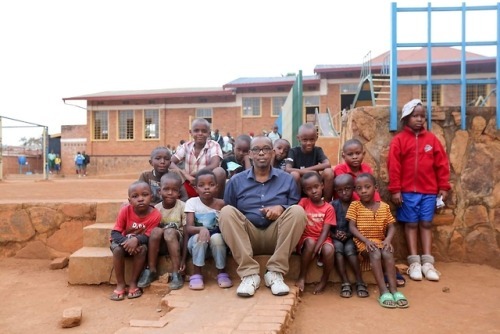
(1/7) “I inherited this orphanage from my father. I was in my twenties at the time. I had other dreams for my life, but the responsibility fell on me. When my father passed away, he begged me: ‘Damas, please don’t abandon the children.’ So I promised him that I never would. When the genocide began in 1994, I’d been managing the orphanage for several years. I was thirty-three. I was newly married. I had a one-year-old child at home. When I heard news of the president’s assassination, I immediately ran to comfort the children. Gunfire had begun to enter the air. We were housing about 65 children at the time. Many of them were Tutsis. I told the staff that nobody was allowed to leave the orphanage. As the day passed, more and more people began arriving. I had a reputation in the community for helping people. So everyone came to me for shelter. Their neighbors had turned against them. Many of them were being chased by killers. I knew that the penalty for sheltering Tutsis was death, but I didn’t have the heart to turn them away. So I invited everyone inside. I thought: ‘We have institutions in this country. The United Nations is here. The danger will be over soon.’”
(Kigali, Rwanda)
October 26, 2018
“It might not seem possible for a nation to heal from genocide...
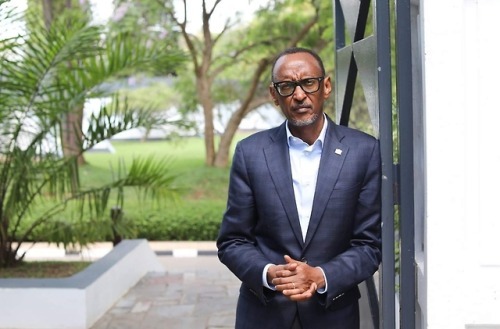
“It might not seem possible for a nation to heal from genocide so quickly. And some might think that our reconciliation is surface level. But it runs deeper than that. If we were truly a nation playing ‘make believe,’ our progress would have been impossible. Rwanda’s per capita GDP has grown nearly 500% since the genocide. And I understand that economics might seem like a dry subject, but you must consider what it represents. It represents Rwandans working together. And trading together. And trusting each other. It represents a consensus that our best future is a shared one. Without true reconciliation, we’d have never come this far. Do tribes still exist in Rwanda? Of course. There will always be divisions between us. I can’t ask people to forget about these things. But I tell them: ‘Consider the ways that we are a single tribe. We all speak one language. We all have the same culture, and dances, and behaviors. So be proud of who you are. But also be proud of being Rwandan. Because that is something all of us are.”
(Kigali, Rwanda)
Brandon Stanton's Blog
- Brandon Stanton's profile
- 769 followers



